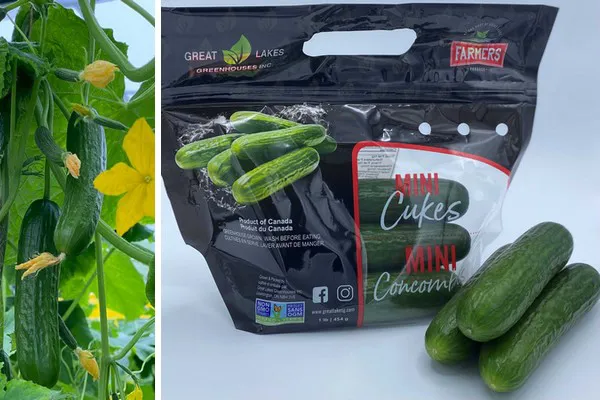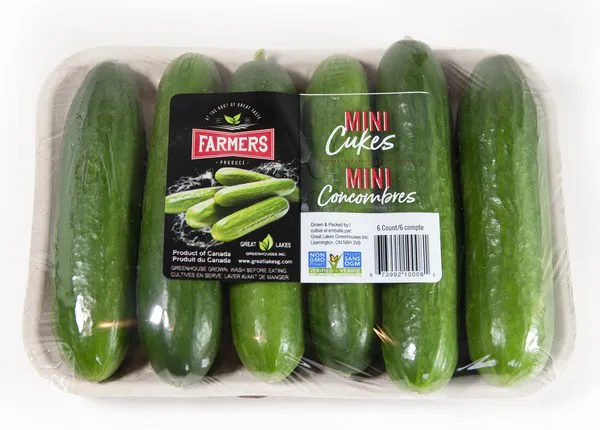Canada’s summer sunlight hours make the country very suitable for greenhouse vegetable production about nine months out of the year. “In winter, roughly from the end of November until the end of January, we just don’t get enough sunlight,” says Jeff Richardson with Great Lakes Greenhouses. Canadian greenhouses can still produce crops in the winter, and with the help of LED lighting technology, those yields can be improved. “Although summer light can’t be replicated, it is pretty remarkable to see production levels in winter. Yields aren’t that far off,” said Richardson.

Crop switch
Cucumbers and mini cucumbers are Great Lakes’ key crop, and with the help of LED lighting technology, Long English cucumbers, organic mini eggplant, and mini cucumbers are grown year-round by the company. Between the two cucumber varieties, significant changes were made this past year. “Last winter, we had 10 acres of mini cucumbers under light but expanded that area to 34 acres by popular demand this winter. Growth of the snacking category resulted in our retail partners asking us to branch out and increase our snacking cucumber production and explore other snacking items.” Great Lakes responded by reducing their Long English cucumber acreage to 53 and adding 24 acres to the mini cucumber segment for the winter.
In addition to cucumbers, Great Lakes grows Organic TOV, Beefsteak tomatoes, bell peppers, and Cherry on-the-vine tomatoes during the summer months. “However, there is no tomato production for us in winter. Our tomato crop is 100 percent organic, and the cleaning cycle is a critical component,” commented Richardson. “Given that tomatoes and peppers share the same area, we do a hard deep clean at the end of the season. Following the last harvest, we pull out the entire crop, execute a rigorous cleaning cycle in the greenhouse, and start from scratch again.” Right now, tomato plants for next year are in our in-house propagation area and will be planted in the greenhouse the first week of December.
Although a smaller part of the product offering, organic mini eggplants are also harvested year-round as they are on their own, in a separate harvest area.

 For more information:
For more information:
Jeff Richardson
Great Lakes Greenhouses Inc.
Tel: +1 (519) 987-3520
Jeff@greatlakesg.com
https://greatlakesg.com/
